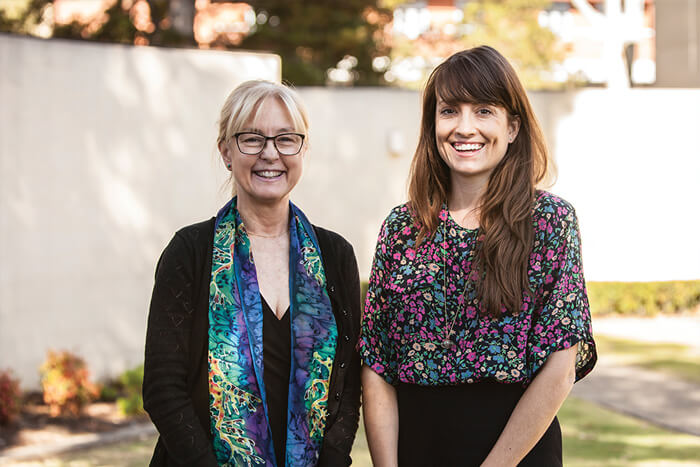Search
Research
Parent-reported Areas of Greatest Challenge for their ADHD and/or Autistic ChildrenThis study aimed to understand how parents describe the most challenging behaviors exhibited by their children diagnosed with autism and/or ADHD, how those behaviours impact their family, and whether challenges are directly related to the core characteristics of these conditions.
Research
Plasma Metabolite Profiles of Children with Autism Spectrum DisorderAutism spectrum disorder (ASD), a neurodevelopmental condition characterised by social and communication differences, is complex and aetiologically heterogeneous. Untargeted metabolomics is emerging as a tool in screening for biochemical abnormalities. This research was conducted using the Australian Autism Biobank resource and involved analysis of plasma metabolites to characterise metabolite differences between autistic children and controls.

News & Events
The Kids welcomes support for autistic studentsThe Kids Research Institute Australia has welcomed the recommendations to come out of the State Government’s inquiry into support for autistic children and young people in schools, released last week.
Research
Early motor function of children with autism spectrum disorder: A systematic reviewEarly motor impairments have been reported in children with neurodevelopmental disorders (NDD), but it is not clear if early detection of motor impairments can identify children at risk for NDD or how early such impairments might be detected. Our aim was to characterize early motor function in children later diagnosed with NDD relative to typically developing children or normative data.

News & Events
Thinking big to tackle kids’ brain developmentIf there’s one thing modern researchers and health professionals now understand, it’s that for so many diseases and conditions affecting children and adolescents, early intervention is crucial.

News & Events
Local researchers lead biggest ‘artificial pancreas’ outpatient studyThe Children’s Diabetes Centre at The Kids Research Institute Australia is leading the longest and largest at-home trial of a hybrid closed-loop insulin pump system.
Research
Parental Experiences of Having a Child Diagnosed With Septo-Optic DysplasiaSepto-optic dysplasia (SOD) is a congenital disorder affecting 1 in 10,000 births, defined by the presence of at least two of a clinical triad, consisting of optic nerve hypoplasia, midline brain defects and pituitary hormone deficiency. Children with SOD may have vision impairment, hormonal deficiencies, developmental disorders, or epilepsy, but the clinical picture is highly variable. The complexity of SOD, its interplay with family factors, and the need for multiple specialty commitments can make the diagnosis period a challenging time for families.
Research
Feasibility and acceptability of implementing an evidence-based ESCALATION system for paediatric clinical deteriorationThe ESCALATION system is a novel paediatric Early Warning System that incorporates family involvement and sepsis recognition. This study aimed to assess the feasibility and iteratively refine the ESCALATION system in a variety of hospital settings in preparation for full-service implementation.
Research
Socioeconomic representativeness of Australian, Canadian and British cohorts from the paediatric diabetes AdDIT study: comparisons to regional and national dataGiven limited data regarding the involvement of disadvantaged groups in paediatric diabetes clinical trials, this study aimed to evaluate the socioeconomic representativeness of participants recruited into a multinational clinical trial in relation to regional and national type 1 diabetes reference populations.
